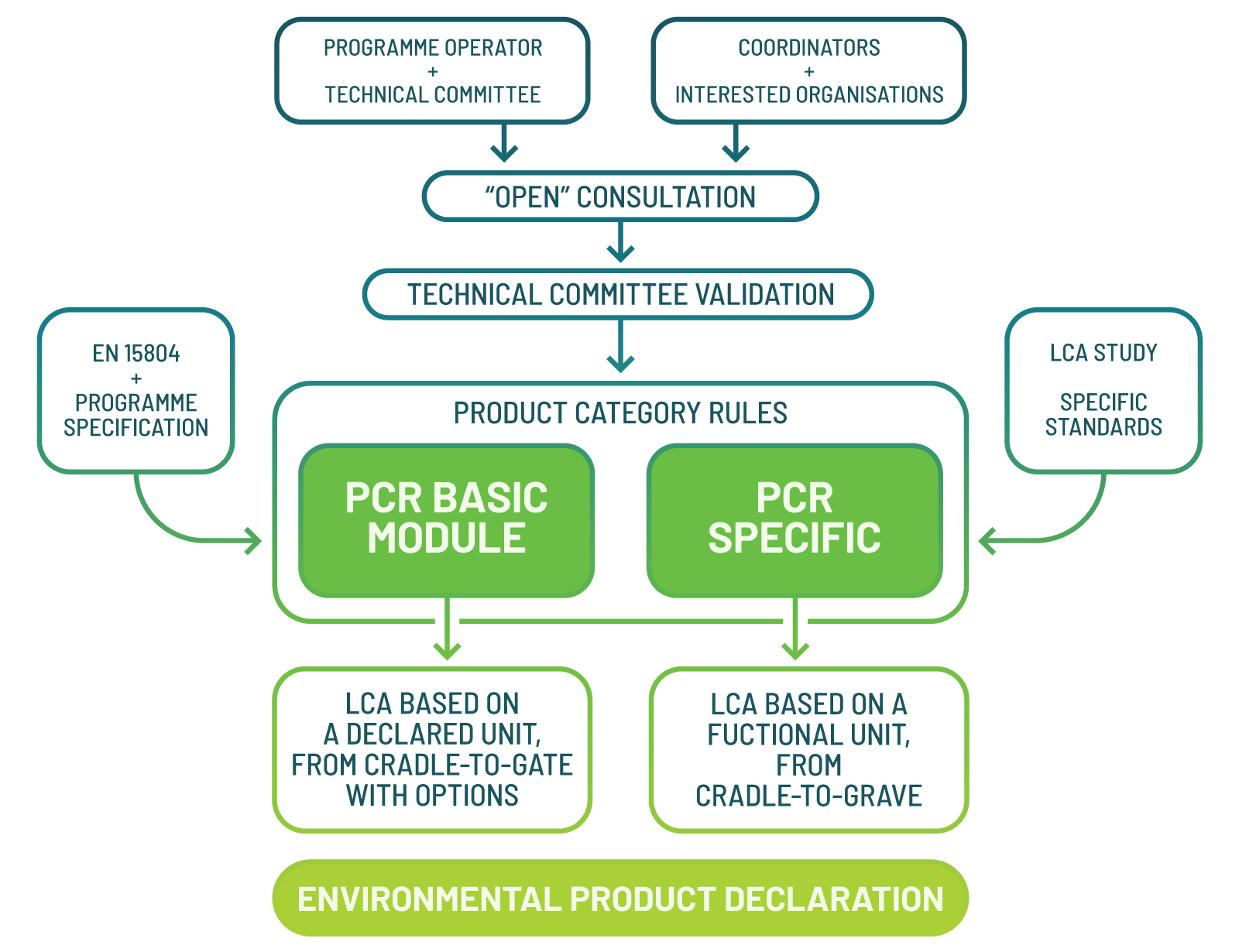PCR
Product Category Rules (PCR) are documents which ensure the transparency of the EPD-making process and allow comparability between different EPDs based on the same PCR document.
In the DAPHabitat System, the LCA study that supports an EPD can be performed based on the two types of PCR documents that the program offers:
- RCP: basic model
- RCP: specific (by product category).

What are the PCRs?
The acronym PCR means “Product Category Rules” and are documents that encompass a set of rules, prerequisites, and specific guidelines for the EPD development, such as: parameters to declare, life cycle stages to consider in the processes, rules for the elaboration of scenarios, life cycle inventory data and impact evaluation rules, additional environmental data rules, comparability conditions between products/services and EPDs registration in the DAPHabitat system’s database.
PCR documents are prepared with the purpose of specifying rules for a given product category. This product group holds similar functions and characteristics, being therefore defined by the same functional unit.
Note that in DAPHabitat System there are two types of PCR documents, both prepared in accordance with EN 15804 + A2, and are:
- PCR: model-based [adjustment of the EN 15804 + A2 to the Portuguese registration program and national considerations]
- PCR: specific [specifications related to the LCA study, completing the EPD or Project Report for a specific category of product]
The characteristics of these documents, become additional documents to general instructions of the DAPHabitat System.






